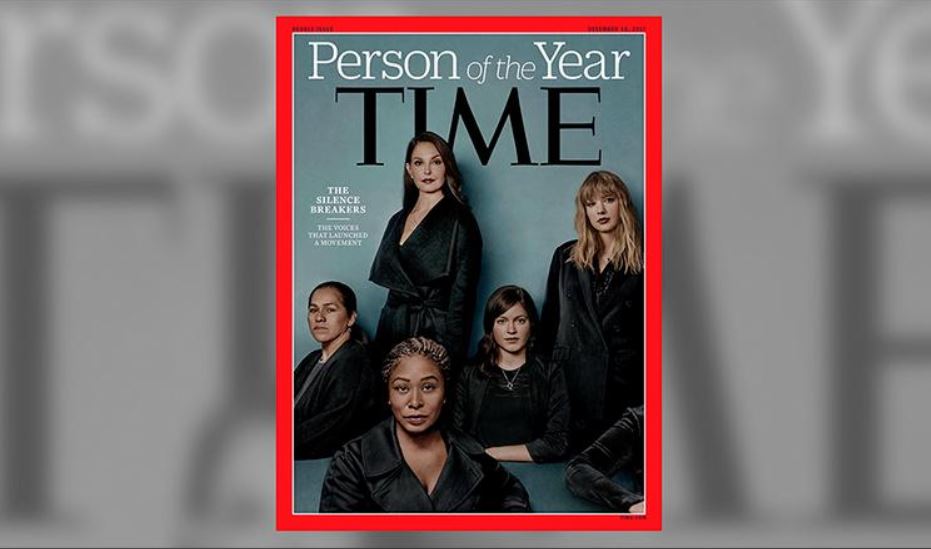Article originally published in the American City Business Journals on December 12, 2017
There hasn’t been a day that’s gone by recently without sexual harassment accusations unfolding against a celebrity or government official. The most prominent people recently accused are NBC “Today” host Matt Lauer, actors Kevin Spacey and Danny Masterson, U.S. Senator Al Franken, U.S. Representative Trent Franks, and Alabama Senate candidate Roy Moore.
NBC fired Lauer. Spacey and Masterson were fired by Netflix. Franken announced his intention to resign “in the coming weeks,” while Franks announced that he would resign from the House of Representatives immediately.
Moore, denying allegations of sexual misconduct that have been described by prominent Republicans as credible, continues to run for the Senate with the full support of President Donald Trump. It will be up to the voters to decide during the special election today, Dec. 12, whether Moore becomes the next senator from Alabama.
On Dec. 6, Time Magazine named “The Silence Breakers” as its Person of the Year, recognizing the many courageous women who have publicly named powerful men whom they accuse of sexual misconduct. The cover page of this edition of Time shows actress Ashley Judd, singer Taylor Swift, lobbyist Adama Iwu, former Uber engineer Susan Fowler and Isabel Pascual, the pseudonym of a woman who asked that her name not be used so as to protect her family. The photo also shows the right arm of a sixth woman, visible at the bottom right of the photo, representing those women who have not yet come forward.
Prior to the sexual misconduct accusations against Roger Ailes and Bill O’Reilly of Fox News and Harvey Weinstein of The Weinstein Co., women were hesitant to go public. They feared that they would not be believed, would damage their careers, or would be accused of purposely putting themselves in risky situations for personal gain.
The accusations against Ailes, O’Reilly and Weinstein gave critical mass to the issue and emboldened women to publicly make accusations against powerful men with whom they worked or interfaced. The #MeToo social media movement was launched, providing a place for women to express solidarity and write about their own experiences of sexual harassment. It was as if the dam broke.
The question is, Will there be a cultural change and women be treated with respect?
In a New York Times article on Dec. 6 headlined, “5 harassment takeaways from Ashley Judd and Times reporters,” columnist Katie Rogers noted that, “Reporting on the abuser is just the first step.”
“When [The New York] Times reporters [Emily] Steele and Michael Schmidt dug into settlements surrounding O’Reilly,” Rogers wrote, “they came to understand that the culture that protects abusers — and, in some cases, enables them to harass or assault multiple people — can be institutionalized by human resources departments and the internal legal teams that draft such settlements.”
In exchange for financial settlements, accusers sign non-disclosure agreements that prohibit them from going public. Unfortunately, this enables the accused to continue their practice of sexual misconduct.
Ailes, O’Reilly and Weinstein were terminated by their employers when adverse publicity seriously threatened their companies’ reputations, or advertisers abandoned the accused celebrities. Absent these factors, one wonders how long these three would have continued to have been employed.
When the boards of companies feel it is more important to protect employees from sexual harassment and abuse instead of protecting an accused celebrity who generates tens of millions of dollars in profits, things will change.
What has not received much press are the relatively smaller number of cases in which false accusations of sexual harassment or misconduct against men by women (and, occasionally, accusations against women by men) who feel they were wronged in some way.
The CEO of an organization shared with me that he had been accused of sexual harassment by a direct report after the performance review he gave her indicated her work was not satisfactory. Her sexual harassment accusation would protect her from being terminated. The board of the organization followed due process and hired an outside, independent law firm to investigate and found her accusations were without merit. The executive’s reputation, however, was damaged, even with due process.
The accusations became “public” within the workplace because the investigation required speaking with other employees who work closely with both parties. Even though the accusations were found to be baseless, the reputation of the executive was tarnished and the ability to do his job was undermined.
Anyone who has ever been accused of sexual misconduct but found innocent of the accusation has had their marketability for future employment significantly diminished. Society has not yet caught up with how to treat these types of accusations in a manner which is fair to both the accuser and the accused. How to ensure fairness to the accused and accuser in these cases is a question that society must grapple with.
Stan Silverman is founder and CEO of Silverman Leadership. He is a speaker, advisor and nationally syndicated writer on leadership, entrepreneurship and corporate governance. Silverman earned a Bachelor of Science degree in chemical engineering and an MBA degree from Drexel University. He is also an alumnus of the Advanced Management Program at the Harvard Business School. He can be reached at Stan@SilvermanLeadership.com.

